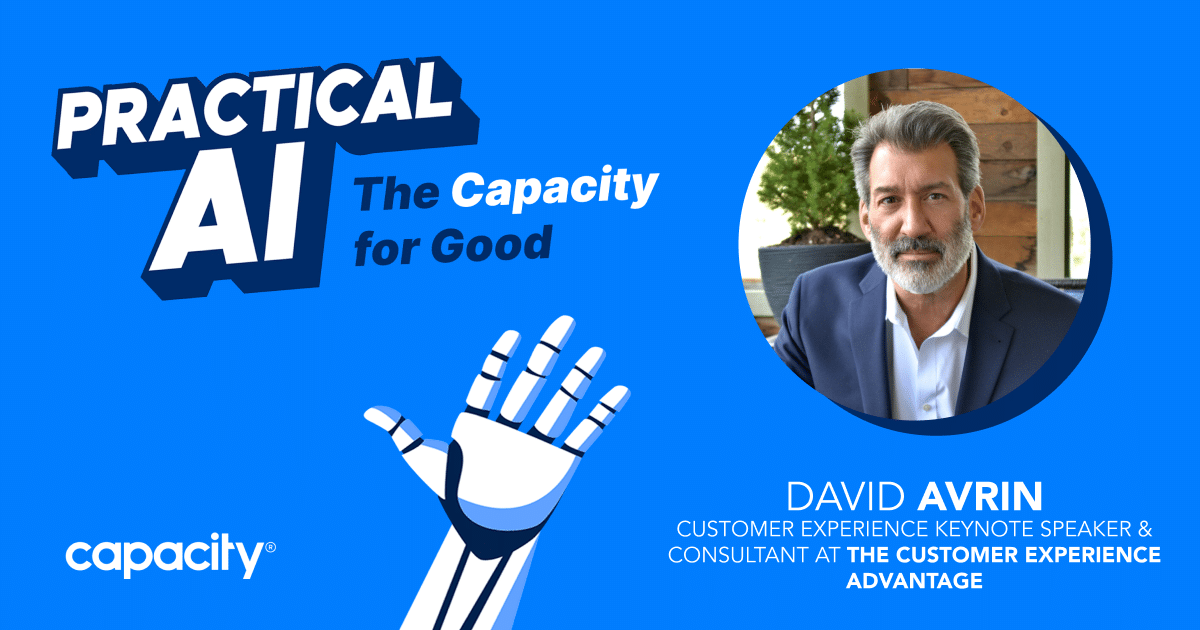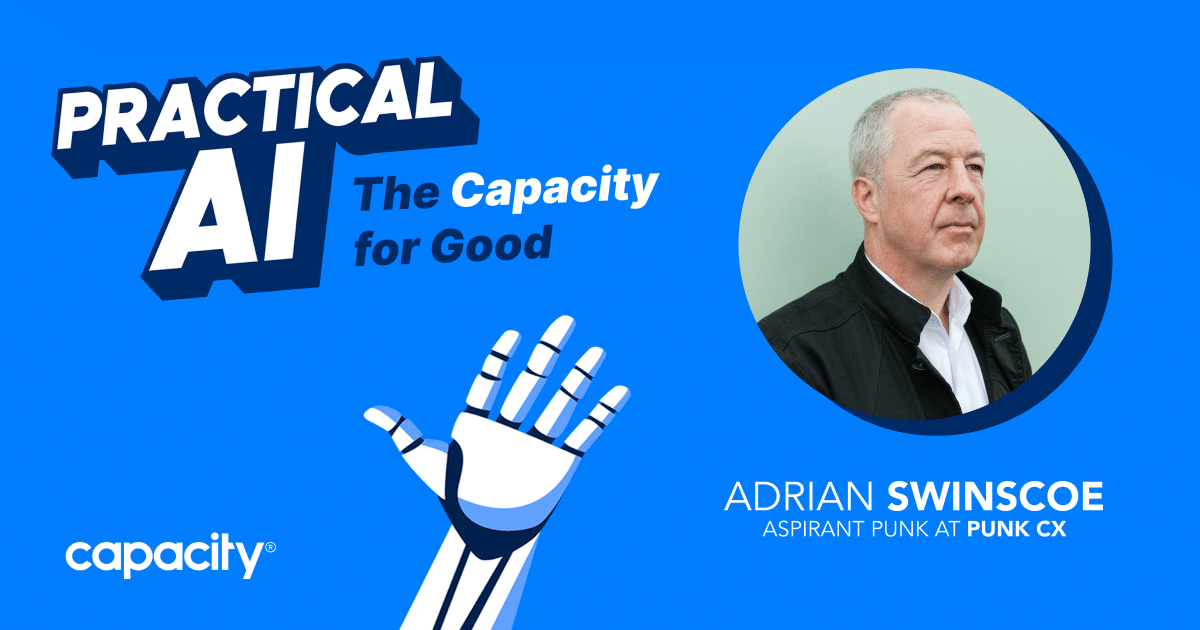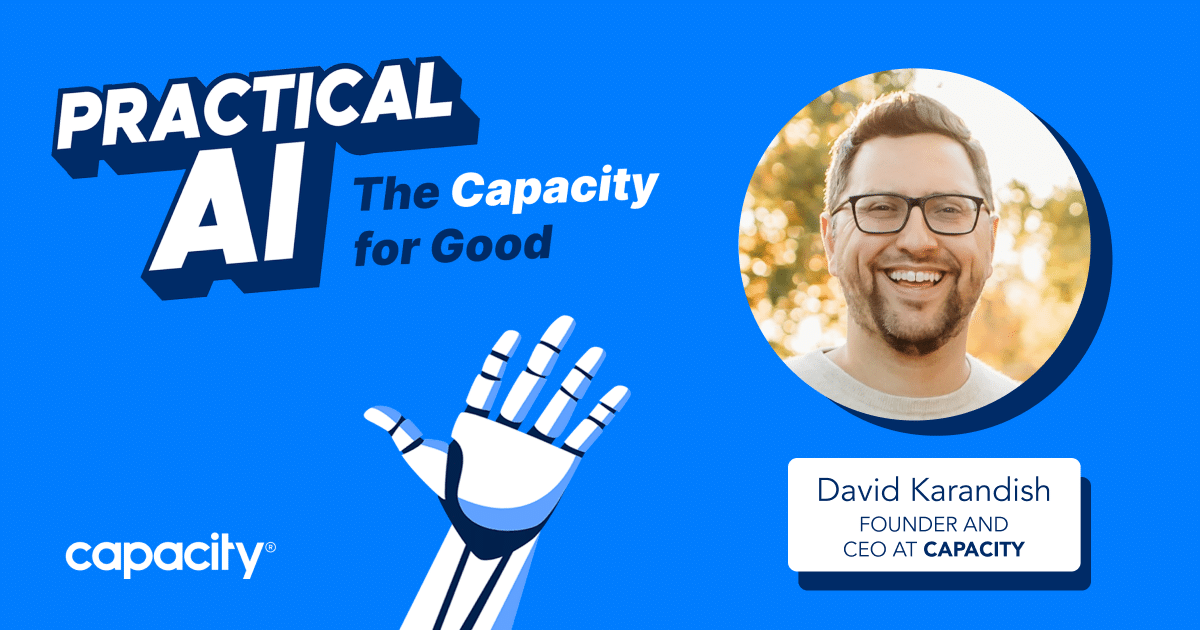We’re in an era where seamless and efficient communication is at the heart of successful business operations. In effect, the role of intelligent conversations in enterprise settings is becoming increasingly crucial. Companies are turning to advanced technology and looking at ChatGPT case studies to fuel these conversations in enterprise settings. In effect, businesses are aiming to enhance engagement, collaboration, and decision-making across their organizations. Among these technologies, Artificial Intelligence (AI) stands out as a game-changer. AI like ChatGPT offers the potential to revolutionize how we communicate and conduct business.
The paradigm of intelligent conversations has been taken to new heights with solutions like OpenAI’s ChatGPT. ChatGPT has made it possible to carry out intelligent conversations in enterprise settings that go beyond the boundaries of traditional communication. As a result, companies are transforming interactions into dynamic information exchanges, fostering better understanding, and catalyzing more informed decision-making.

Automate Your Work
Capacity’s enterprise AI chatbot can help:
- Answer FAQs anytime, anywhere
- Find relevant documents within seconds
- Give surveys and collect feedback
ChatGPT, a state-of-the-art language model, exemplifies AI’s capability to facilitate intelligent conversations. Capable of understanding and generating human-like text, ChatGPT is increasingly being used in enterprise settings, offering a myriad of case studies from customer service to internal communications. As businesses continue to harness the potential of AI and tools like ChatGPT, the rise of intelligent conversations seems inevitable. There’s then a promising a future where communication is not just simplified but also more impactful and meaningful. So, et’s learn more about AI through looking at ChatGPT case studies in enterprise settings.
Understanding AI

Artificial Intelligence (AI), as a branch of computer science, involves the development of machines and software that exhibit human-like intelligence. It is a broad and multidimensional field with various subfields such as machine learning, natural language processing, robotics, and more. Overall, the central goal of AI is to create systems that can perform tasks that would normally require human intelligence. AI can understand language, recognize patterns, solve problems, and help make decisions.
To fully understand AI, it is important to grasp its two primary categories: narrow AI and general AI. Narrow AI, also known as weak AI, is designed to perform a specific task. Those tasks might look like voice recognition or driving a car. But, these AI systems operate under a limited set of constraints. Typically, this is the type of AI that we interact with in our day-to-day lives. Google’s search engine, Siri, and recommendation algorithms used by platforms like Netflix and Spotify are examples of narrow AI.
On the other hand, general AI, is a type of AI that has the potential to understand, learn, and apply knowledge across a broad array of tasks. General AI operates at a level equivalent to or beyond a human being. While the idea of general AI is a common theme in science fiction, it remains largely theoretical.
Nonetheless, the development of general AI is a long-term goal for many businesses in the AI field. AI’s impact is far-reaching and transformative. It has the potential to drastically change a wide variety of sectors including healthcare, education, transportation, and more. That’s why 35% of companies are using AI. Additionally, 42% of companies are exploring AI for its implementation in the future, according to a TechJury article. But,as the technology continues to evolve and mature, understanding AI and its capabilities will be crucial.
A look at some AI (like ChatGPT) case studies in enterprise settings
Case Study 1: Streamlining your customer support
Customer support plays a pivotal role in any business. And with the advent of AI technologies like ChatGPT, it is undergoing a significant transformation. Gartner also tells us that customer satisfaction is expected to grow by 25% by 2023 in organizations that use AI. Let’s consider the case of a mid-sized eCommerce company named ShopEase, that wanted to enhance its customer support experience.
ShopEase has a diverse customer base. As a result, it receives hundreds of daily inquiries about product information, order tracking, return policies, and more. Given the high volume of queries, the company struggled to provide timely and accurate responses. This then resulted in customer dissatisfaction and potential loss of sales.
To overcome this challenge, ShopEase approached AI, specifically ChatGPT, for assistance. The company integrated ChatGPT into its customer service operations intending to streamline responses and improve customer satisfaction.
With ChatGPT, ShopEase was able to automate a significant portion of its customer queries. For instance, the AI model was trained to accurately respond to frequently asked questions. And it could handle order inquiries by integrating with the company’s database. Plus, it provided product recommendations based on the customer’s browsing history.
Moreover, with ChatGPT’s natural language understanding capabilities, it could understand the nuances of customer inquiries and provide relevant responses. This ability to understand and interact in a human-like manner improved the overall customer experience. In effect, the interaction became more personalized and engaging.
The results for ShopEase were astounding. By using ChatGPT, they managed to reduce their response time dramatically, improve the accuracy of their responses, and increase overall CSAT. Additionally, by automating a significant part of its customer service, the company freed up its human agents to handle more complex issues. And as a result, they increased their productivity.
Case Study 2: Improving your internal communication

Effective internal communication is the center of any successful enterprise. It facilitates collaboration, boosts productivity, and promotes a harmonious working environment. However, with an increasing shift toward remote work and a globally distributed workforce, traditional means of communication are proving to be inadequate. IT analyst firm, Info-Tech Research Group reports that 44% of private sector companies plan to invest in AI systems in 2023. This is where AI technologies like ChatGPT come into play.
Consider the example of TechFlow, a global technology company with teams spread across multiple time zones. As the company grew, communication between its dispersed teams started to pose a challenge. There were information gaps and delays, leading to inefficiencies and misunderstandings. Realizing the potential impact on productivity and team morale, TechFlow decided to use the power of AI to streamline their internal communication.
The company integrated ChatGPT into its communication systems. ChatGPT was used as an intelligent communication assistant on the company’s internal messaging platform. The AI assistant was programmed to monitor conversations, extract action items, set reminders, and even answer queries about company policies or project specifics. This saved valuable time and ensured important information was not lost in long communication threads.
Furthermore, ChatGPT was trained to transcribe and translate conversations during live meetings. This feature proved incredibly useful for TechFlow’s international teams, breaking down language barriers and ensuring everyone was on the same page despite linguistic differences.
The integration of ChatGPT had a profound impact on TechFlow’s internal communication. The AI-powered assistant significantly streamlined information flow, reduced communication gaps, and fostered better collaboration. Handling routine queries and tasks freed up employees’ time, allowing them to focus on more strategic, high-value tasks.
Case Study 3: Optimizing your supply chain management
Optimizing supply chain management is crucial for any business looking to minimize costs, reduce inefficiencies, and improve customer satisfaction. With the advent of AI technologies like ChatGPT, supply chain management is undergoing a radical transformation.
Consider the case of SwiftTrans, a multinational logistics and transportation company. SwiftTrans was grappling with the complexity of managing its extensive supply chain network. Despite having a sophisticated management system, SwiftTrans faced challenges in predicting demand, optimizing routes, and ensuring effective communication between various stakeholders.
To address these issues, SwiftTrans turned to AI and integrated ChatGPT into its supply chain management system. ChatGPT was used to analyze historical data and current market trends, allowing SwiftTrans to make more accurate demand predictions. It was also used to develop optimized routes for transportation, considering factors like traffic conditions, weather, and delivery timelines. This led to cost savings, reduced delivery times, and increased customer satisfaction.
One of the most significant impacts of ChatGPT was on communication within the supply chain. With numerous stakeholders involved in various stages, maintaining transparent, real-time communication was a challenge. SwiftTrans used ChatGPT as an intelligent interface between different parties. It ensured that all stakeholders were updated about the status of deliveries, schedule changes, or potential issues in real-time. ChatGPT also served as a 24/7 support assistant, providing instant responses to queries, thus saving time and improving efficiency.
The integration of ChatGPT led to a noticeable improvement in SwiftTrans’ supply chain operations. There was a significant reduction in costs, improved delivery times, and enhanced stakeholder communication. The case of SwiftTrans is a testament to how AI technologies like ChatGPT can revolutionize supply chain management, making it more efficient, transparent, and responsive.
Some ethical considerations in using AI in your enterprise
When implementing AI technologies like ChatGPT in an enterprise setting, there are several ethical considerations to bear in mind. First and foremost is the issue of data privacy. AI systems often rely on large amounts of data to function effectively, and some of this data may be sensitive or personal. It’s vital that this data is handled with care, stored securely, and used in accordance with data protection laws. Transparency around data usage is a must and enterprises should ensure that AI systems do not infringe on individual privacy rights.
Furthermore, bias and fairness are crucial ethical considerations in AI usage. AI systems learn from data, and if this data contains biased information, the AI could potentially replicate or even amplify this bias. Therefore, businesses must ensure that the AI models they use are trained on diverse and representative datasets to minimize bias. Decision-making processes involving AI should also be transparent and interpretable, and companies should have measures in place to address any potential harm or adverse impacts that may arise from using AI. Ultimately, the aim should be to use AI in a way that respects human rights, ensures fair treatment, and contributes positively to society.
What’s the future of AI

The future of AI in enterprise settings is poised for remarkable advancements. AI technologies like ChatGPT will continue to evolve, offering increasingly sophisticated capabilities for businesses. AI will enable deeper personalization, delivering tailored experiences and recommendations to customers. It will also enhance decision-making through advanced analytics and predictive insights. As AI becomes more adept at automating routine tasks, it will empower employees to focus on higher-value work, fostering innovation and productivity. Furthermore, the future promises seamless and intelligent communication, with conversational AI like ChatGPT driving enhanced customer interactions and streamlined internal collaboration.
AI has made it possible to carry out intelligent conversations that go beyond the boundaries of traditional communication. They are transforming interactions into dynamic information exchanges, fostering better understanding, and catalyzing more informed decision-making. The paradigm of intelligent conversations has been taken to new heights with solutions like OpenAI’s ChatGPT.
ChatGPT exemplifies AI’s capability to facilitate intelligent conversations. Capable of understanding and generating human-like text, ChatGPT is increasingly being used in enterprise settings, offering a myriad of applications from customer service to internal communications. As businesses continue to harness the potential of AI and tools like ChatGPT, the rise of intelligent conversations seems inevitable, promising a future where communication is not just simplified but also more impactful and meaningful.

Automate Your Work
Capacity’s enterprise AI chatbot can help:
- Answer FAQs anytime, anywhere
- Find relevant documents within seconds
- Give surveys and collect feedback





